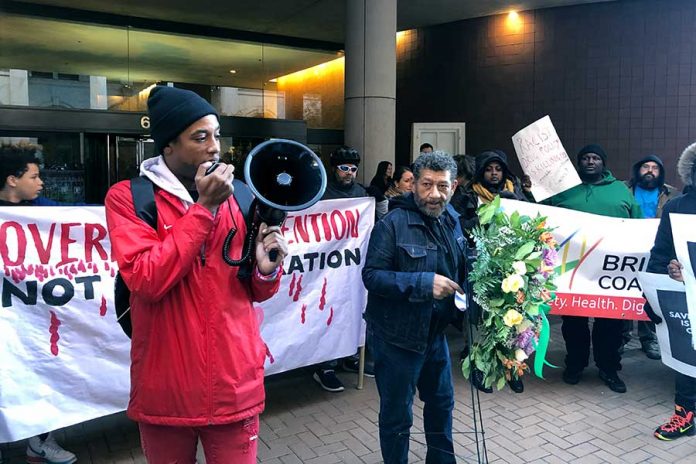The Community Control of Health, a local committee of Black and Brown LGBTQ and Poz folks are holding a symposium “focused on the liberation of queer and trans Black and Brown persons centering their experiences of sexual and racial oppression in a safe, confidential environment, designed specifically for that community.”
Members of local organizations including ACT UP Philadelphia — an international group devoted to ending the AIDS crisis via action and activism — collaborated to organize the conference; Black and Brown Workers Collective, The Gran Varones and Sol Collective serve as sponsors.
The inaugural, day-long conference will take place on Feb. 8 at the Lesbian Gay Bisexual Transgender Center at 3907 Spruce St. This community effort arose, in part, because of BBWC’s work tackling issues of racism in Philadelphia’s Gayborhood.
“It actually made us look up and say ‘Hey, let’s all of us queer people of color start addressing these issues, but in a way that we’re addressing internal issues of our own community,’” said Afro-Latinx queer ACT UP organizer José de Marco.
“I’ve watched the epidemic go from one population to another population. It’s actually a disease now with people of color that for many reasons people are being infected with HIV. While the modes of transmission basically remain the same, the reasons are vastly different in 2020,” he said.
According to the Philadelphia Department of Public Health 2019 HIV Surveillance Report, which reflects 2018 statistics, 42.2 percent of Philadelphians with HIV were men having sex with those assigned male at birth. The same year, 14.4 percent of Philadelphians with HIV were people who inject drugs. In 2018, of those living with HIV, 62.9 percent were Black and 16.2 percent were Hispanic.
The conference will begin with a panel discussion about issues surrounding queer and trans people of color living with HIV/AIDS run by leaders in the Black and Brown queer community, Following, roundtable sessions for community members to discuss how they feel and make decisions will be held.
One significant problem de Marco signaled is that few AIDS service organizations are staffed with queer people of color.
“A lot of times people of color are compelled to go to organizations that don’t actually look like us,” de Marco said. “Some folks have not had the privilege of higher education, and a lot of times, they’re not employed at these places, but in reality they’re the experts, and they should be employed at these places.”
He described a situation where two tall African-American members of ACT UP had negative experiences at a doctor’s office. The medical professionals were in the wrong, and the two ACT UP members responded in anger.
“By them being African-American and being tall, all sorts of stereotypes and assumptions were made about them,” de Marco said. “I think they were about to call the police on these guys. I thought to myself, ‘if these had been out white gay guys, this would not have happened. They would have corrected the situation right away.’ These are the things that we want to talk about.”
GALAEI Counselor and HIV Tester Jorian Rivera Veintidos, a queer man, is also part of the conference’s organizing committee, which he says is very community-based and will continue to grow.
“I feel like this is going to set the narrative and the path to how we’re really going to change our community that we see every day,” Veintidos said. “We see the numbers; we see the statistics; we see what’s happening in our community, and so by doing community work, we’re encouraging communities to take that narrative with us and make that change.”
De Marco pointed out the hardships that QTPOC living with HIV face on a regular basis because they are minorities within minority communities.
“It’s hard being a person of color in this world, and then you add in being queer … and HIV positive — those are three big bags of bricks you have to deal with,” he said. “Most people never think past that when it comes to Black and Brown queer people. That’s one of the reasons this conference came around too, so we could discuss some of these issues amongst ourselves.”
De Marco said where he lives, he can’t put a rainbow flag outside of his front door. “A lot of people of color, we live in neighborhoods where we can’t do that. We’re still stigmatized, HIV is still stigmatized, being queer is still stigmatized. Especially for trans folks,” he added.

